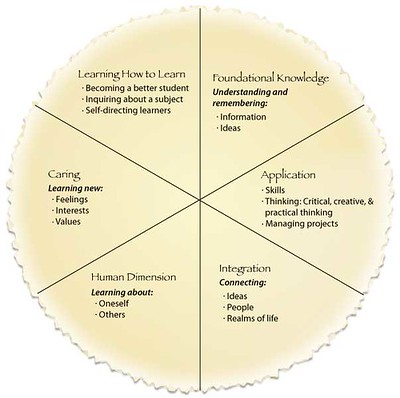In the Have You Seen…? page for this week, we learn about a simple but evidently effective technique for encouraging student behaviors and potentially stopping the “snowballing” that can happen when students miss an assignment: the email nudge.
The writers demonstrate how sending a personalized email can lead to demonstrably higher grades and more certain student attendance at advising meetings. In a previous post, Gillian Galle demonstrated how you can use the Canvas gradebook to identify students who miss an assignment and send them an email, and the new Aviso system can be programmed to send automated, yet personalized emails.
For this column, I want to propose using this technique for intervening when you have a concern about students’ mental well-being. This applies whether you are teaching a synchronous course and observe them in video conferences or you have concerns arising from their performance in an a-synchronous course. I’m taking a cue from this article in the Chronicle of Higher Education, pre-pandemic, about “How to Help a Student in a Mental Health Crisis” by David Gooblar. It concerns how individual faculty members can make effective interventions and referrals of students to on-campus wellness resources. The article proposes a simple but very powerful approach: Notice, Ask, and Refer to available services.
As of several weeks ago, student use of our counseling services was down compared to previous semesters. And yet it would appear that there is no shortage of stressors and student anxiety in remote learning, ranging from their learning spaces, time and resource management, to worry about how they appear on Zoom. We all aren’t trained counselors, and that’s not our job. But faculty members working with students are in a good position to observe what is happening and help to connect them to wellness resources.
This kind of support IS going on across the campus, as we have learned in recent student surveys. You may be aware that Amanda Richardson, Director of Institutional Research, conducted NSSE (National Survey of Student Engagement) Pulse, a brief survey to learn about students’ experiences of remote learning in the pandemic. There were many interesting and important results, not the least of which concerned how students perceive the support they receive from Castleton educators. Here is a summary:
When asked how much Castleton emphasizes providing support for students’ academic success, 89% of first-year students and 79% of students beyond first year either agreed or strongly agreed. This is an encouraging report, though it is interesting to note how the number decreases beyond the first year. We know that first-year students have a course that is designed and delivered, more or less, to help them to make the transition to college, and they have faculty advisors who are trained, or at least encouraged to be intrusive in their support. The challenges of first-year students are different from those of their more advanced peers, but it still leads one to wonder why these peers perceive less emphasis on providing this kind support.
When asked how much Castleton emphasizes support for students’ well-being, the numbers drop slightly but show a similar distribution. 87% of first-year students and 68% of more advanced peers agree or strongly agree.
When asked how much Castleton emphasizes providing support for helping students to manage their non-academic responsibilities, however, the numbers really drop: 56% of first-year students agree or strongly agree, while only 32% of older students agree or disagree. There are lots of implications for these numbers. Questions measuring this factor considered matters of family dynamics or managing work and school responsibilities. When we consider that most of our students are managing university study from their childhood bedrooms or that poor time management can be a major cause of stress and anxiety, we can see that there is room for improvement in this kind of student support.
Back to the email nudge…
Notice: The author urges us to notice what is happening and to be aware of signs that students may be in distress. For many of us, noticing and being prepared to address what we see is as much a matter of disposition as it is awareness. Is it our place to intrude upon matters of students’ personal lives beyond what is happening in the immediate “classroom”? Are we confident that we would be able to help them? Does doing so seem to cross a boundary or move us out of our “comfort zone” with students? Admittedly, opening ourselves to being this kind of support for students can seem like a big step, and most of us don’t go into our the teaching profession with this practice in mind. However, most of us who have taken that step would probably report that it is not as big as we might lead ourselves to imagine. From my point of view, it’s one we all should be willing to take, during “normal” times but especially now.
Ask: If you are inclined to notice when a student is having difficulty, the Chronicle article urges you to ask what is happening. Send the email: Go “out on a limb, show your students you care, and inquire when you notice potential distress.”
Refer: Again, we aren’t counselors, and though students will confide in us, no one expects us to step into that kind of support role for students. Refer them to our Wellness Center or to other supports that you are aware of.
Anticipating this subject, Martha Coulter, Director of the Wellness Center shared some of the many resources available for students. She shares an additional resource on Creating a Culture of Caring, a faculty resource for supporting student well-being and some on-campus leads:
Information regarding how to sign up for counseling services and for all crisis numbers appears on the Wellness Center webpage.
Starting on Thursday Nov.4th, the Wellness Center is offering weekly workshops/clinics to assist students struggling with depression and anxiety.
Workshops will take place on Wednesdays: Nov. 4, Nov. 11, and Nov. 18.
- Getting Unstuck : Wednesdays 1-1:45pm
Focuses on helping you understand depressive symptoms and build skills to manage these symptoms. Three sessions will cover: (1) understanding depression, (2) exploring how thoughts and behaviors impact depression, and (3) addressing how you can begin to make changes to thoughts and behaviors in order to better manage depression.
Zoom link: https://vsc.zoom.us/j/89362591669 - Anxiety Toolbox: Wednesdays 2-2:45pm
Anxiety Toolbox focuses on helping you understand anxiety symptoms and build skills to manage these symptoms. The three sessions will cover: (1) understanding anxiety, (2) introducing a method for slowing down and disentangling the experience of anxiety, and (3) developing alternative responses to anxiety.
Zoom link: https://vsc.zoom.us/j/83732189817 - The Active Minds club has teamed up with the Random Acts of Kindness club to provide a student-led group, where any students on and off-campus are welcome to join. The goal is to connect with one another even though we are on computers and have open discussions every week about anything! Students interested in participating can go to the following zoom link on Thursdays to join the meeting.
Zoom link: https: //vsc.zoom.us/j/88046508128




[…] Pedagogy Tip: A Supportive Nudge […]
[…] are getting more and more data about what the student experience was like in the fall. As I reported earlier, the news is that we are doing all right. Maybe someone wondered if it would be a disaster. I never […]